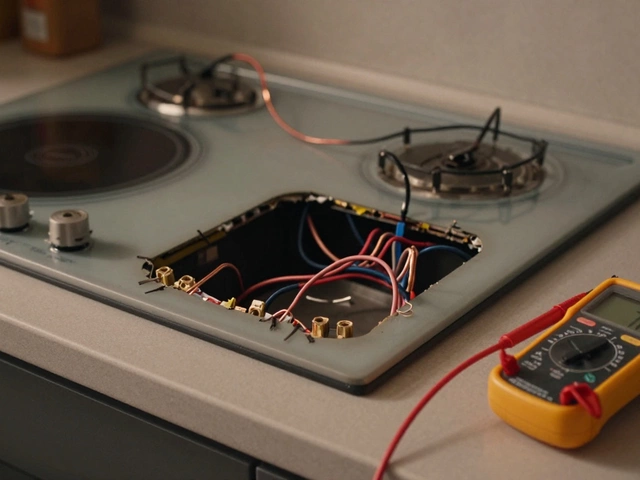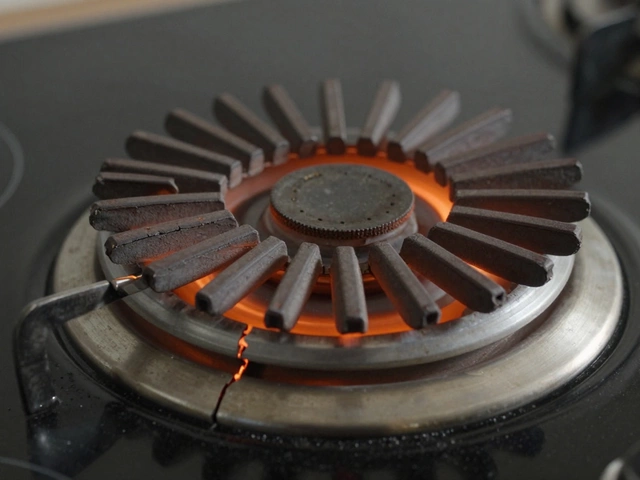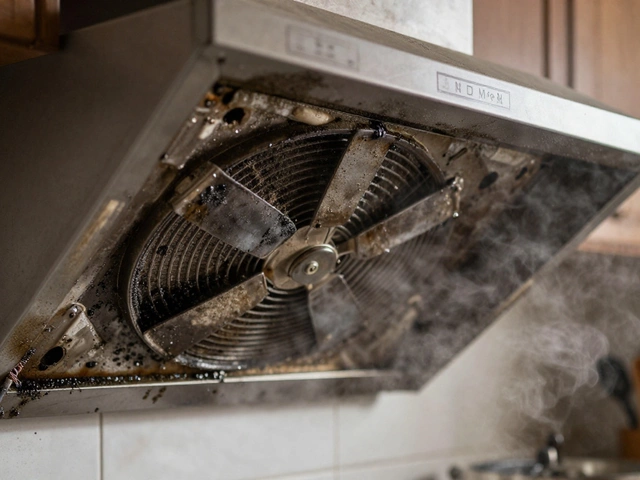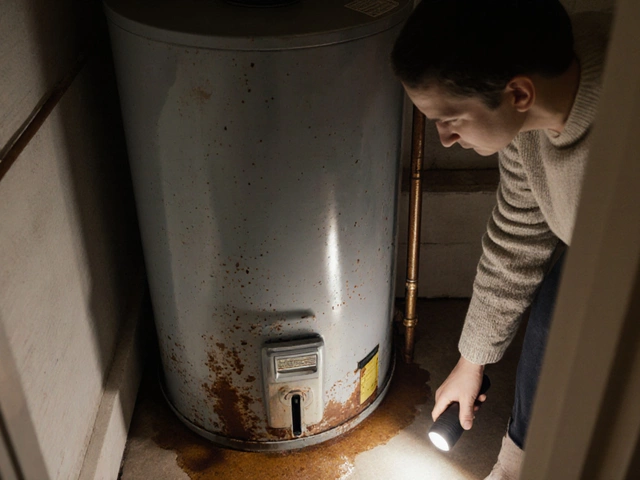Extractor fans keep your kitchen and bathroom free of steam, smells, and mould. When they quit working, the room feels damp and uncomfortable. The good news? Most fan faults are easy to diagnose and fix without calling a technician. Below you'll find the most common issues, simple DIY steps, and clear signs that you need a professional.
First, listen. A humming fan that doesn’t spin usually means the motor is stuck or the blades are jammed. If the fan is silent, the power supply might be broken or a fuse could have blown. Look at the vent grille – dust and grease build‑up can block airflow, making the fan work harder and eventually overheat.
Another frequent problem is a noisy fan. Rattling or grinding sounds often come from loose screws or a worn bearing. Check the mounting screws and tighten any that feel loose. If the noise persists, the bearing may need lubrication or replacement.
Water leaks are a red flag. Moisture around the fan housing can corrode internal parts and cause short circuits. If you see water, turn the fan off at the breaker and dry the area before you start any repair.
Here’s a straightforward checklist you can follow:
1. Turn off power. Switch off the circuit breaker or remove the fuse to avoid shocks.
2. Remove the grille. Most fans have clips or screws. Gently pull it away and clean the grease with warm soapy water.
3. Inspect the motor. Look for burnt smells or visible damage. If the motor smells burnt, it likely needs a replacement.
4. Check the wiring. Loose or corroded wires are a common cause of failure. Tighten connections and replace any frayed sections.
5. Lubricate bearings. If the fan spins slowly or makes a whining sound, apply a few drops of light machine oil to the bearing points.
6. Re‑assemble and test. Put the grille back, restore power, and switch the fan on. If it runs smooth and quiet, you’re done.
When a fan won't start after these steps, the motor is probably dead. In that case, order a compatible replacement motor or a whole fan unit. Most kitchen and bathroom fans use standard sizes, so you can find matches at local DIY stores or online.
Before you install a new fan, double‑check the vent length and duct size. A vent that's too long or too narrow reduces airflow and can cause the new fan to overwork. If you need help measuring, most stores have handy guides on the packaging.
Finally, keep a maintenance routine. Wipe the grille once a month, run the fan for at least a few minutes after every shower or cooking session, and listen for any change in sound. Regular care stops small problems from becoming big, costly repairs.
If at any point you feel unsure—especially when dealing with electricity—don’t hesitate to call a qualified appliance repair service. A quick visit can save you time, prevent damage, and keep your home fresh.

Wondering who fixes extractor fans? Find out which trade has the right skills, top repair tips, and practical advice for solving extractor fan issues fast.

Replacing an electric hob isn't a DIY job. In the UK, it requires a qualified electrician for safety, legal compliance, and insurance reasons. Here's what you need to know before swapping your hob.

Learn how to tell if your electric stove element is bad with simple visual checks, multimeter tests, and common signs of failure. Save money by diagnosing and replacing it yourself.

Kitchen extractor fans typically last 10-15 years, but grease buildup and lack of cleaning can cut that in half. Learn the signs it's time to replace yours and how to choose a better model.

Most extractor fans can be repaired with simple fixes like cleaning, capacitor replacement, or tightening parts. Learn when DIY works and when to call a pro to avoid costly damage from damp and mold.

Find out if fixing a 20‑year‑old water heater makes sense. Compare repair costs, energy loss, and replacement price to decide the best move for your home.